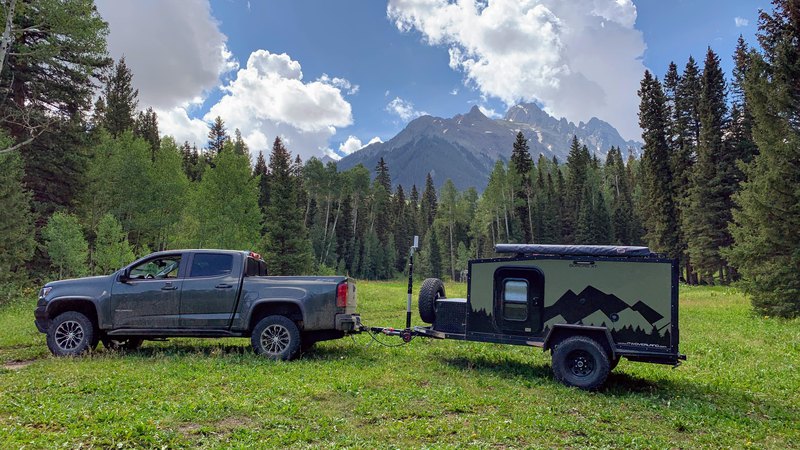How to Prepare Your Trailer for Remote Trips

Preparing your trailer for a remote adventure is one of the most important steps you can take before heading off the grid. Whether you’re exploring the outback, camping in national parks, or embarking on a long-distance road trip, being properly equipped is key to staying safe, comfortable, and self-sufficient. Remote trips often mean limited access to services, fuel, food, and even phone reception. That’s why it’s essential to do your homework, check your trailer thoroughly, and pack the right gear to ensure your journey runs smoothly.
Pre-Trip Trailer Checks You Should Never Skip
Your trailer needs a comprehensive inspection before hitting the road. This doesn’t just mean checking the tyres and giving it a quick once-over. Remote conditions can put immense stress on your trailer, so thoroughly reviewing each component is well worth the effort.
Start by examining your tyres. Look for any signs of cracking, uneven wear, or punctures, and ensure the pressure is at the correct level, including the spare. A blowout in the middle of nowhere is not only inconvenient—it can be dangerous. Wheel bearings should be inspected and greased if necessary, and all bolts and nuts should be tightened and secure. Loose parts might rattle themselves apart on corrugated roads.
It’s also a good idea to inspect the trailer’s braking system. If you’re using electric brakes, test the brake controller in your vehicle to ensure it’s functioning properly. Suspension components should also be reviewed, especially if you plan to tackle rough terrain. Finally, make sure your lights and indicators are all in working order.
Securing Your Load for Rough Conditions
Once you’ve confirmed that your trailer is roadworthy, the next step is securing your load. Remote tracks can be unforgiving, so your cargo needs to be tied down in a way that prevents movement over long distances. Uneven weight distribution can affect your trailer’s balance and handling, increasing the risk of swaying or tipping. Try to keep the heaviest items low and centred over the axle.
Use ratchet straps, storage nets, and non-slip mats to keep everything in place. Double-check that doors, latches, and hatches are locked and won’t swing open mid-trip. If you carry jerry cans or gas bottles, ensure they are properly mounted and won’t shift on bumpy roads.
Power and Water Management
Power and water are two of the most critical resources when you’re away from civilisation. Your trailer should have a reliable battery setup capable of powering your lights, fridge, water pump, and other accessories. Many remote travellers opt for dual battery systems or solar panels to extend their energy supply.
Before you go, check the battery charge levels and ensure your solar setup functions as expected. Also, test all your 12V sockets, switches, and appliances to confirm they’re drawing power correctly. If your trailer has a water tank, make sure it’s clean and full and that there are no leaks. Having an extra jerry can or portable filter can make a big difference in areas where clean water is scarce.
Why Reliable Lighting Is Non-Negotiable
One of the most overlooked but vital aspects of remote travel is lighting. When you’re hundreds of kilometres from the nearest streetlight, your ability to see at night becomes a key factor in your comfort and safety. Reliable lighting doesn’t just mean interior trailer lights. You’ll want dependable exterior lights and, most importantly, high quality torches.
Torches are crucial in everything from setting up camp after dark to making emergency repairs. They give you the flexibility to see exactly what you’re doing, whether checking under the trailer, walking to the amenities, or responding to an unexpected situation. A torch with a high lumen output and long battery life can differentiate between a small problem and a big one.
In remote areas, it’s wise to carry at least two torches—one as your primary light source and one as a backup. It’s also worth considering rechargeable options that can draw power from your trailer’s battery system or solar setup. For those night-time roadside stops or mechanical issues, having a torch with a magnetic base or headlamp functionality allows you to work hands-free.
Navigating Without Reception
Navigation is another area where preparation is crucial. Many remote areas lack mobile phone coverage, which means you won’t be able to rely on Google Maps or other app-based navigation tools. Investing in an offline GPS system or pre-loading maps onto your device is a smart move. Paper maps can also serve as a reliable backup if all else fails.
Let someone know your travel plans before you depart, including your intended route and estimated arrival times. In case of emergencies, devices such as satellite phones or personal locator beacons (PLBs) can connect you to help when regular mobile networks are out of reach.
Food, Safety, and First Aid
Planning your meals and packing enough food for the journey is not just about convenience—it’s about survival. Remote trips mean you might be away from supermarkets for several days, so non-perishable and easy-to-prepare items should form the base of your supplies. Ensure your fridge is working efficiently and that you have enough gas or electricity to power it for the duration of your stay.
Your first-aid kit should be fully stocked and tailored for the environment. It should include everything from bandages and antiseptics to snake bite kits and pain relief. It’s also wise to carry spare medications if anyone in your group has a health condition. Having a well-thought-out safety plan that includes emergency contact numbers, evacuation routes, and knowledge of local hazards can also make a big difference in a crisis.
Vehicle and Trailer Recovery Gear
When travelling to remote places, being prepared for vehicle or trailer recovery is necessary. A simple mishap, such as getting bogged in sand or mud, can become a major setback without the right tools. Recovery boards, a shovel, a snatch strap, and a high-lift jack can all be extremely useful. Make sure you know how to use them properly and store them in an accessible place.
You should also carry basic tools and spare parts, such as fuses, fan belts, hose clamps, and tyre repair kits. These can help you fix minor issues and keep your trip moving. Even if you don’t need them, having them on hand provides peace of mind.
Final Thoughts Before You Set Off
A well-prepared trailer can distinguish between an enjoyable adventure and a stressful ordeal. Remote travel is all about self-reliance, so it’s essential to ensure your gear is in good working order, your trailer is road-ready, and you’re equipped to handle unexpected challenges.
Reliable lighting, especially a good set of torches, plays a bigger role in your trip than expected. From night-time camp setups to handling emergencies confidently, it’s a piece of gear that should never be underestimated.
With the right planning, checks, and gear, your trailer will be ready to tackle the country’s most remote corners, giving you the freedom to explore confidently.
You can explore a range of high-performance torches at https://maxbeamaustralia.com.au.




